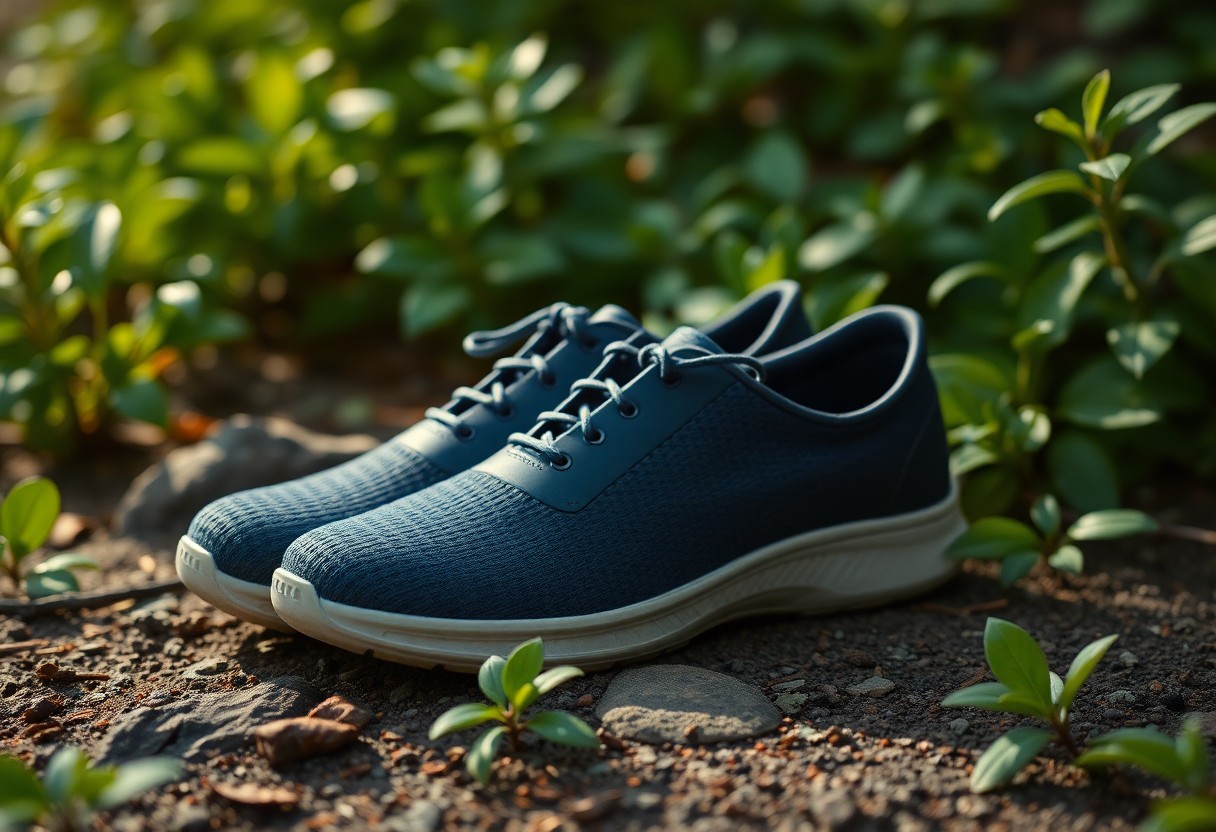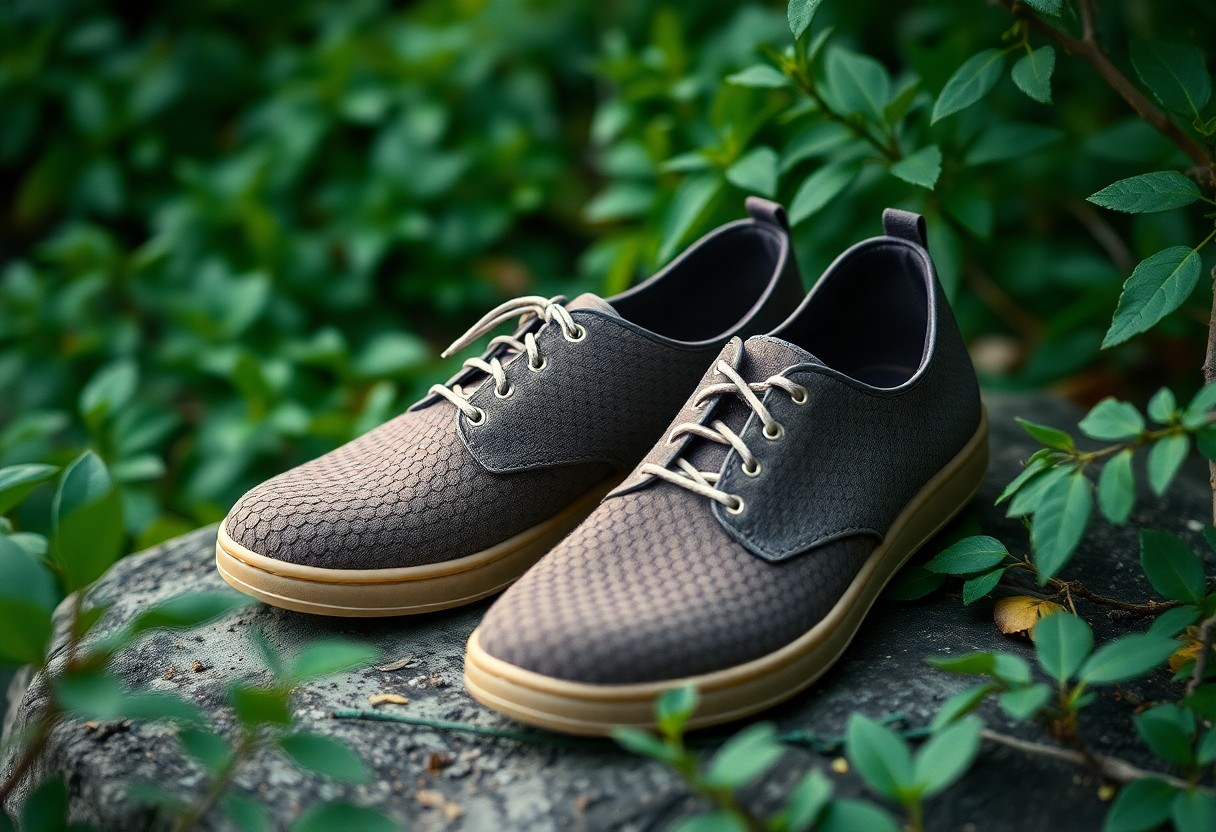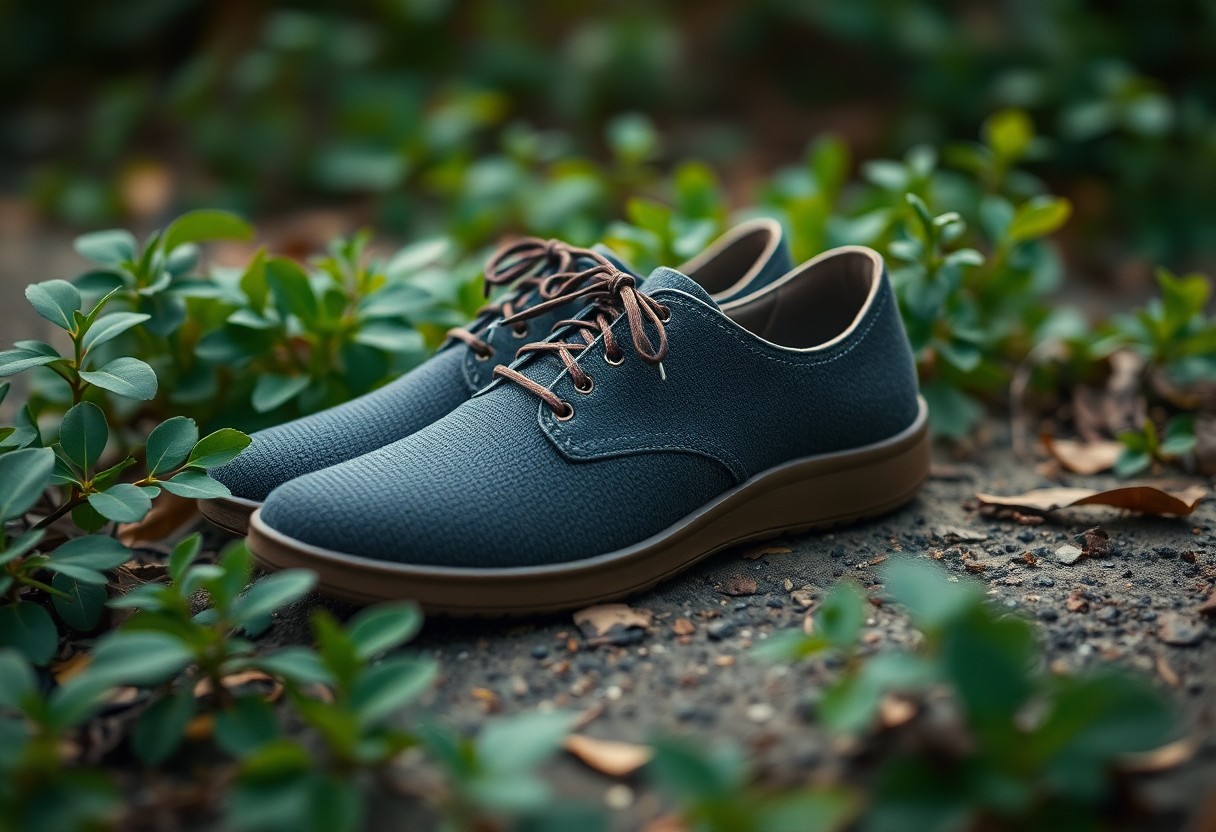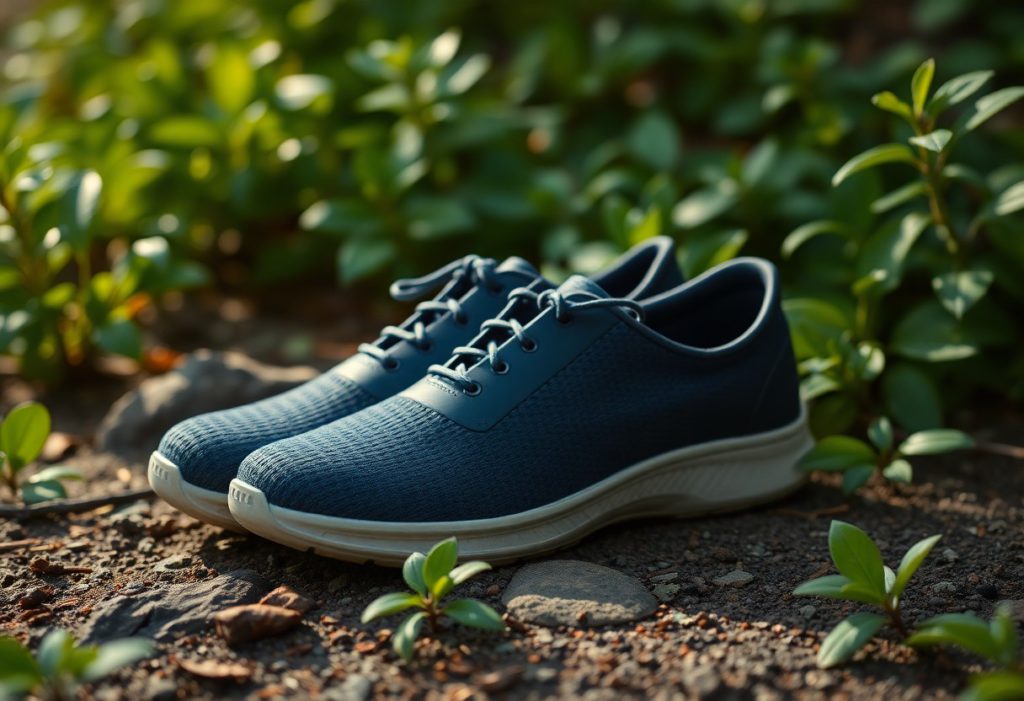As the demand for footwear that resonates with personal values—such as being minimalist, functional, and environmentally friendly—grows, Xero Shoes has risen to prominence. This brand offers shoes that merge barefoot flexibility with eco-conscious materials, incorporating features like recycled soles and plant-based dyes. A pertinent question emerges: just how sustainable are these shoes? Xero Shoes promotes carbon-neutral shipping and features durable designs aimed at reducing waste; however, some synthetic components pose certain challenges. Opting for Xero Shoes means you are making strides towards sustainability while remaining aware of your environmental impact, despite a few compromises. If you seek footwear that prioritises eco-friendly practices, here are essential insights to consider.
Unlock the Advantages of Eco-Friendly Footwear Today
Traditional shoes often rely on synthetic materials and harmful production methods. In contrast, eco-friendly footwear is crafted with sustainability at the forefront throughout the entire production process. These innovative designs incorporate recycled, biodegradable, or plant-based materials, leading to a significant reduction in waste and carbon emissions. For those who cherish the barefoot movement, brands like Xero Shoes seamlessly weave this philosophy into minimalist designs, enabling you to tread lightly on our planet—akin to walking with a lighter footprint, both in a literal and environmental sense.
Grasping the Concept of Eco-Friendly Footwear
At its essence, eco-friendly footwear consists of shoes made from sustainable materials, such as organic cotton and natural rubber, adhering to ethical manufacturing processes. These shoes intentionally exclude toxic dyes, excessive packaging, and non-recyclable components, ensuring that your purchasing choices contribute to healthier ecosystems and uphold fair labour practices. It’s vital to grasp that it’s not just about the shoes you wear, but also about the processes involved in their creation.
The Rising Popularity of Minimalist Shoe Designs
Minimalist designs, including barefoot shoes, have gained traction as alternatives to traditional cushioned footwear, primarily due to their natural feel and environmental advantages. By minimising surplus material, these shoes drastically lower waste and energy consumption, embodying the ethos of “less is more.” This trend is evident in brands like Xero Shoes, which utilise thin, durable soles and lightweight fabrics, significantly reducing resource utilisation. This shift indicates a growing awareness that simpler designs can effectively diminish your carbon footprint without sacrificing functionality.
For instance, Xero Shoes employs lightweight materials and innovative techniques to create footwear that not only feels comfortable but also respects the environment. This thoughtful approach resonates with those who prioritise sustainability in their lifestyle choices.
The Vital Role of Sustainable Practices in the Footwear Industry
The footwear production process is a significant contributor to pollution and landfill waste, with billions of pairs discarded each year. Adopting sustainable practices, such as using recycled plastics and water-based adhesives, helps alleviate these pressing issues. By selecting eco-friendly options, you support innovative practices that safeguard ecosystems and reduce harm. However, it’s essential to recognise the stakes involved: the fast fashion industry’s reliance on synthetic materials results in microplastic release and resource exploitation. In contrast, sustainable brands concentrate on longevity and circularity, ensuring your footwear does not exacerbate the ongoing problem.
Diving Deep into Sustainable Materials Used in Xero Shoes
If you are searching for eco-friendly barefoot shoes, Xero Shoes prioritises sustainability through the use of recycled PET and Hemp, efficiently minimising waste and environmental impacts. Their commitment to green alternatives ensures that your footwear aligns with your values—allowing you to walk with a lighter footprint in both a literal and environmental manner.
Embracing Eco-Friendly Recycled PET Laces
Sustainable practices often begin with small choices, and Xero Shoes’ laces are crafted from 100% recycled PET, transforming plastic waste into durable, functional components. By choosing these laces, you contribute to diverting plastic from landfills while enjoying lasting performance, thus aiding in the effort for a cleaner planet.
Exploring the Advantages of Hemp Uppers
The environmental benefits of Xero Shoes’ hemp uppers are substantial. Hemp is a low-water, pesticide-free crop renowned for its ability to enhance soil health. Its natural breathability and strength render it an excellent choice for barefoot shoes, providing comfort without harming the Earth. Opting for hemp supports a cleaner future due to its rapid growth and carbon-sequestering properties. Unlike synthetic fabrics, hemp decomposes naturally, which mitigates long-term waste accumulation. Furthermore, its antimicrobial properties help keep your shoes fresh for extended periods.
When comparing hemp to conventional materials:
| Hemp | Requires 50% less water than cotton |
| Synthetics | Derived from fossil fuels, non-biodegradable |
Examining the Environmental Impact of Minimalist Design
Xero Shoes’ minimalist designs not only reduce material waste but also minimise your carbon footprint by requiring fewer resources during production. The streamlined design process means less energy is consumed in manufacturing, and the absence of excessive padding or synthetic layers significantly decreases landfill contributions. Choosing minimalist footwear embodies a design philosophy that prioritises efficiency and sustainability, akin to walking with a lighter footprint in both a literal and environmental context.
Utilising Lightweight Materials for Enhanced Sustainability
The environmental advantages of Xero Shoes are clear with their lightweight, low-impact materials, including recycled rubber soles and vegan-friendly fabrics. These selections help alleviate the strain on natural resources while still delivering high performance. You'll observe that these materials also aid in lowering transportation emissions, as lighter shoes necessitate less fossil fuel during shipping, contributing to a greener planet.
Ensuring Long-Lasting Durability with Xero Shoes
Beyond their eco-friendly materials, Xero Shoes are designed for longevity, significantly reducing the need for frequent replacements. The reinforced stitching and high-quality rubber outsoles are built to withstand wear and tear, guaranteeing that your shoes remain functional for years to come. This durability directly correlates to a reduction in landfill waste, making them a smart choice for sustainable living.
Indeed, Xero Shoes’ durability is backed by a 5,000-mile sole warranty, illustrating their commitment to minimising environmental impact. Fewer replacements lead to lower resource consumption, and their repairable design allows you to extend the life of your shoes even further. For eco-conscious consumers, this combination of resilience and sustainability is truly transformative.
Gaining Insight into Certifications and Ethical Practices
Once again, Xero Shoes reaffirms its commitment to sustainability by adhering to rigorous certifications and ethical practices. Their transparency in sourcing and manufacturing ensures that your barefoot shoes align with eco-friendly values. From carbon-neutral shipping to recycled materials, they prioritise minimising environmental harm while delivering high-performance footwear. Just like walking with a lighter footprint—both literally and environmentally—their efforts reflect a true commitment to planet-friendly practices.
Understanding the Importance of Fair Trade Certification
By selecting Fair Trade-certified materials, Xero Shoes actively promotes ethical labour conditions and fair wages for workers. Your purchases contribute to empowering communities and fostering social equity. While not all their products carry this certification, their continuous efforts to enhance supply chain ethics indicate significant progress towards a more responsible future.
Recognising PETA-Approved Vegan Certification
Impact is paramount, and Xero Shoes’ PETA-Approved Vegan certification guarantees that your footwear is 100% free from animal-derived materials. This certification aligns with a cruelty-free lifestyle while also reducing the environmental impact associated with leather production. Their vegan options prove that you can uphold ethical standards without compromising performance.
Moreover, PETA’s approval encompasses not only material sourcing but also involves a rigorous audit of supply chains to ensure there is no exploitation of animals. Xero Shoes’ dedication in this area signifies that you can trust their claims, avoiding common greenwashing pitfalls prevalent in the industry. For conscious consumers, this certification provides an additional layer of assurance regarding your sustainable choices.

Case Study: Personal Experiences with Sustainable Footwear
Numerous barefoot shoe enthusiasts have articulated how Xero Shoes resonate with their eco-conscious values, celebrating the brand’s minimalist design and sustainable materials. Whether focusing on waste reduction or opting for vegan-friendly alternatives, users highlight how these choices mirror their commitment to a greener lifestyle—akin to walking with a lighter footprint, both literally and environmentally.
Analysing Lifecycle Impact
Xero Shoes aims to reduce environmental harm at every phase of their product lifecycle, from production to eventual disposal. Their durable construction enhances wearability, while recyclable components help diminish landfill contributions. You will find that their lifecycle approach balances performance with planet-friendly practices.
Feedback from Sustainability Advocates
Insights from eco-conscious wearers indicate strong support for Xero Shoes’ transparency and ethical sourcing. Advocates highlight the brand’s initiatives, such as utilising recycled materials, which resonate deeply with their personal sustainability goals.
Upon further examination of these testimonials, it becomes evident that durability and low-carbon manufacturing are frequently cited as standout features. However, some advocates propose there is potential for improvement in end-of-life recycling programs, encouraging the brand to innovate further in circular practices.

The Impact of Consumer Choices on Sustainability
Sustainable habits initiate with your actions. Your choices as a consumer shape market demand, influence brands, and propel the transition to eco-friendly practices. By selecting products like Xero Shoes, you support companies that prioritise minimal waste and ethical sourcing, demonstrating that small actions can culminate in significant change.
The Environmental Effects of Your Purchasing Decisions
Before making a purchase, consider your environmental footprint. Each transaction creates ripple effects—from resource extraction to landfill waste. Opting for barefoot shoes made from recycled materials or biodegradable components can greatly lessen your impact, reinforcing the concept of walking with a lighter footprint—both literally and environmentally.
The Importance of Consumer Education and Awareness
Understanding the lifecycle of your footwear is crucial. The more informed you are, the more your choices improve. Brands like Xero Shoes openly share their processes, enabling you to avoid greenwashing and align with genuine sustainability.
Consumer awareness extends beyond superficial labels. Researching materials, labour conditions, and carbon footprints empowers you to make educated decisions. Ignorance fuels unsustainable practices, while knowledge fosters accountability and progress in sustainable consumerism.
The Increasing Demand for Sustainable Products
The growing interest in eco-friendly footwear reflects a broader cultural shift. As more individuals prioritise sustainability, brands are stepping up with innovations like plant-based soles and zero-waste packaging, evidencing that your consumer choices can instigate meaningful change within the industry.
Your behaviours shape market dynamics. Your preference for sustainable options pressures competitors to adapt or risk becoming obsolete. Fast fashion and synthetic materials are declining as conscious consumers advocate for alternatives, progressively fostering a healthier planet.
The Financial Landscape of Sustainable Footwear
Opting for eco-friendly barefoot shoes, such as those from Xero Shoes, reflects a growing trend towards sustainable consumer practices. While these shoes may require a higher initial investment than conventional options, their durability and minimal environmental impact often justify the cost. By supporting brands that prioritise ethical materials and production, you contribute to a circular economy that reduces waste and champions fair labour practices. Like walking with a lighter footprint—both literally and environmentally—your purchase aligns with values that benefit both the planet and future generations.
Cost Considerations for Conscious Consumers
One of the factors influencing your decision is the initial price of sustainable barefoot shoes, which may be higher than mass-produced alternatives. Nevertheless, their extended lifespan and repairability often offset this cost over time. Brands like Xero Shoes focus on quality materials, leading to fewer replacements and less waste. While the initial cost may raise some concerns, the value-per-wear makes them a pragmatic financial choice for eco-conscious consumers.
Long-Term Benefits of Investing in Eco-Friendly Footwear
Beyond reducing your carbon footprint, eco-friendly barefoot shoes also offer health and financial benefits. Their natural designs promote better posture and foot strength, potentially reducing medical expenses associated with inadequate footwear. By choosing sustainable options, you also foster innovation in green materials, driving transformative change across the industry.
For example, Xero Shoes employs recycled and vegan materials that minimise resource depletion and pollution. Over time, your investment in these products contributes to normalising sustainable practices, encouraging more brands to adopt eco-conscious methods. This ripple effect can yield broader environmental benefits, including decreased landfill waste and lower carbon emissions.
Market Trends and Future Projections in Sustainable Footwear
Globally, the demand for sustainable footwear is expanding, with barefoot shoes capturing the interest of health- and eco-conscious consumers. Brands like Xero Shoes are at the forefront, harnessing biodegradable and recycled materials to meet this rising demand. As awareness increases, we can anticipate more competitive pricing, making eco-friendly options more accessible to diverse audiences.
Trends indicate a shift towards transparency, with consumers demanding comprehensive information regarding ethical sourcing and production practices. This call for accountability is reshaping the industry, although challenges such as greenwashing remain. By staying informed, you can make choices that align with sustainability objectives, ensuring your purchases incite impactful change.
Overcoming Challenges in Sustainable Shoe Production
Despite the surging demand for eco-friendly footwear, producing sustainable barefoot shoes like Xero Shoes presents several challenges. The limited availability of certified materials, elevated production costs, and the need for durable yet biodegradable designs complicate the process. You may question if these hurdles jeopardise sustainability—fortunately, brands devoted to innovation are actively pursuing solutions that ensure your shoes reflect your values.
Challenges in Sourcing Ethical and Sustainable Materials
A significant challenge lies in sourcing ethically produced, eco-friendly materials. Each component must comply with stringent environmental standards, from recycled rubber soles to plant-based dyes. You will appreciate that Xero Shoes prioritises suppliers who maintain transparent practices; however, scaling these responsibly remains a formidable challenge for the industry.
Balancing Cost and Quality in Sustainable Footwear
Behind every sustainable shoe is a complex equation: affordability versus durability. Eco-materials typically incur a higher cost, yet cutting corners can compromise longevity—something you certainly won't accept in footwear designed for prolonged use. Brands must navigate this balance without shifting the entire burden onto conscientious consumers.
Challenges arise when budget-friendly alternatives compromise sustainability. For instance, cheaper synthetic options might lower prices but undermine biodegradability. Xero Shoes addresses this challenge by optimising production efficiency, demonstrating that ethical choices need not equate to steep prices.
The Industry’s Resistance to Change
A significant barrier is the footwear industry’s hesitance to abandon fast-fashion models. Conventional manufacturers often prioritise profit over ecological responsibility, making it difficult for sustainable brands to thrive. Your support for eco-friendly companies like Xero Shoes is vital for catalysing systemic change.
Progress might seem slow due to entrenched practices and lobbying against eco-regulations, but consumer demand—driven by your choices—is pushing brands towards greater transparency. Change is underway, but it necessitates ongoing advocacy from consumers who prioritise sustainability over convenience.
Innovations in Eco-Friendly Footwear Technology
Stay at the cutting edge of sustainability with Xero Shoes’ pioneering advancements in eco-friendly footwear. Their innovations focus on minimising environmental impact while ensuring top-notch performance, merging comfort with eco-conscious design. From recycled materials to low-waste production methods, these shoes enable you to walk with a lighter footprint—both literally and environmentally.
Improvements in Sustainable Material Utilisation
Xero Shoes employs recycled polyester, hemp, and plant-based dyes to mitigate the ecological damage associated with conventional fabrics and modern eco-friendly alternatives. These materials significantly reduce water consumption and carbon emissions, providing you with durable footwear that does not compromise the planet.
Biodegradable Components for a More Sustainable Future
At the forefront of sustainability, Xero Shoes integrates plant-based outsoles and natural rubber, which decompose more swiftly than synthetic options. This strategy effectively curtails long-term waste, aligning your footwear choices with a circular economy.
Innovations in biodegradable technology ensure these components break down efficiently, leaving minimal environmental traces. By selecting shoes with these features, you actively contribute to alleviating landfill pressures and minimising microplastic pollution.
Combining Technology with Sustainable Practices
At the intersection of innovation and ecology, Xero Shoes employs 3D printing and precision engineering to minimise material waste. Their processes emphasise efficiency, ensuring that every step you take is supported by sustainable technology.
Sustainability is more than just a buzzword; it’s embedded in their operational ethos. From solar-powered factories to carbon-neutral shipping, Xero Shoes exemplifies how high-performance footwear can coexist with environmentally friendly practices, empowering you to make a difference with each purchase.
Comparing Xero Shoes with Competing Eco-Friendly Brands
When assessing Xero Shoes alongside other eco-friendly barefoot brands, you will identify notable differences in materials, durability, and sustainability approaches. Here’s a quick overview:
Comparative Analysis of Xero Shoes Versus Competitors
| Xero Shoes | Utilises recycled materials, offers vegan options, and emphasises minimalism. |
| Competitors (e.g., Vivobarefoot, Merrell) | Provide similar eco-claims but may lack transparency in sourcing and durability. |
Insight into Similar Eco-Friendly Brands
Upon exploring the market, brands such as Vivobarefoot, Merrell, and Freet prioritise sustainability in their offerings. Here’s how they compare:
Eco-Friendly Barefoot Shoe Brands
| Vivobarefoot | Offers wildhide leather and recycled materials, but at a premium price. |
| Merrell | Combines eco-materials with conventional materials, striking a balance between cost and sustainability. |
Evaluating the Strengths and Weaknesses of Each Brand
To ascertain which brand best suits your needs, consider their advantages and disadvantages. Xero Shoes excels in affordability and transparency, while Vivobarefoot offers premium materials at a higher price. Merrell, conversely, may compromise complete sustainability in favour of durability.
In conclusion, each brand has its respective trade-offs. Xero’s commitment to vegan and recycled materials is commendable, yet some users have noted thinner soles compared to Vivobarefoot’s more robust designs. Merrell’s hybrid method appeals to those seeking compromise, but may not fully satisfy purists.
Market Positioning of Xero Shoes
While Xero Shoes may trail its competitors in brand recognition, it has carved out a niche by balancing eco-consciousness with affordability. Although not as widely recognised as Vivobarefoot, its loyal customer base values its minimalist philosophy and sustainable practices.
Additionally, Xero’s direct-to-consumer model maintains competitive pricing, although its limited retail presence may deter some potential buyers. Their dedication to a transparent supply chain and carbon-neutral initiatives makes them an attractive option for eco-conscious consumers, even amidst ongoing discussions regarding durability.
Engaging with Communities and Supporting Environmental Initiatives
Xero Shoes transcends the conventional role of a footwear brand by actively championing eco-conscious values. They engage in initiatives that resonate with their sustainability mission, encompassing waste reduction efforts and support for various environmental causes. By prioritising transparency, they invite you to partake in their journey towards a greener future—like walking with a lighter footprint both literally and environmentally.
Xero Shoes’ Involvement in Environmental Programmes
While any brand can assert its sustainability, Xero Shoes substantiates this claim with tangible actions. They collaborate with initiatives like 1% for the Planet, donating a portion of their sales to environmental nonprofits. Their commitment to minimising carbon emissions and utilising recycled materials underscores their serious intent to lessen their ecological footprint—allowing you to feel good about your purchase.
Fostering a Community Focused on Sustainability
Any movement towards eco-friendliness flourishes on shared values, and Xero Shoes cultivates this connection among like-minded individuals. Through social media, events, and educational content, they empower you to make informed choices, transforming customers into advocates for sustainable living.
Moreover, Xero Shoes frequently hosts challenges and workshops that inspire deeper engagement, reinforcing that sustainability is not merely a trend—but a lifestyle. By nurturing this community, they amplify the impact of every small step taken towards greener practices.
Encouraging Active Participation from Consumers
The brand goes beyond mere advocacy for sustainability; it invites you to become part of the solution. From recycling old shoes to sharing tips on waste reduction, Xero Shoes equips you with the essential tools to effortlessly lessen your environmental footprint.
Environmental responsibility commences with awareness, and Xero Shoes simplifies this process. Their #XeroImpact campaign encourages you to share your eco-friendly journey, creating a ripple effect that inspires others. When you choose Xero, you are not just acquiring shoes; you are joining a larger movement.

Addressing Frequently Asked Questions on Sustainable Footwear
You may have questions regarding the genuine sustainability of barefoot shoes. Xero Shoes places considerable emphasis on eco-friendly practices, employing recycled rubber and vegan-friendly options. Their dedication to durability results in fewer replacements, thereby minimising waste. However, it’s crucial to keep in mind that no brand is without flaws—always consult their transparency reports for comprehensive impact details.
Common Inquiries Related to Eco-Friendly Materials
Above all, you might wonder: “Are these materials genuinely sustainable?” Xero Shoes utilises plant-based dyes, recycled soles, and breathable meshes. While synthetic blends exist, their focus on low-impact production helps alleviate carbon footprints—akin to walking with a lighter footprint, both literally and environmentally.
Debunking Misconceptions About Minimalist Shoes
In light of ongoing discussions, you may come across claims such as “barefoot shoes lack support.” In reality, they are crafted to strengthen your feet naturally. Misconceptions regarding discomfort often arise from insufficient transition periods—your body requires time to adjust to the change.
Thus, minimalist shoes are not merely a fad, but a healthier alternative when used correctly. Studies indicate enhancements in posture and reduced joint stress, yet rushing into wearing them can result in strain. It’s essential to attune to your body and transition gradually.
Recognising the Importance of Product Certifications
When assessing material safety, seek out certifications like Bluesign® or OEKO-TEX®, which ensure the absence of toxic, responsibly sourced materials. Xero Shoes’ adherence to these standards signifies a trustworthy commitment, but it’s prudent to verify claims—greenwashing is prevalent.
Therefore, certifications are more than mere labels; they serve as your protection against harmful practices. Prioritise brands that undergo third-party audits, as these validate genuine dedication to sustainability, rather than mere marketing rhetoric.
Envisioning the Future of Sustainable Footwear
In the realm of footwear, sustainability has evolved from a niche trend to an essential standard. Brands like Xero Shoes are spearheading this movement with minimalist designs and eco-friendly materials, illustrating that comfort and ecological responsibility can coexist. The future holds promise for further innovations in biodegradable soles, recycled fabrics, and carbon-neutral production, all contributing to reducing your environmental impact—like walking with a lighter footprint, both literally and environmentally.
Trends Fueling Eco-Friendly Innovations
To meet the increasing demand, brands are adopting circular economy principles, including shoe recycling programs and plant-based materials. Advances in 3D knitting and algae-based foams are designed to minimise waste, whilst supply chain transparency guarantees that you understand what you are purchasing. These trends embody a movement towards footwear that is as gentle on the Earth as it is on your feet.
Projections for the Future of the Footwear Industry
In the upcoming decade, anticipate biodegradable shoes becoming mainstream, with brands competing for the lowest carbon footprint. Customisation through AI may help reduce overproduction, and vegan leather alternatives could dominate the market. Your consumer choices will increasingly shape industry standards, pushing brands towards adopting greener practices.
Furthermore, as regulations tighten, companies that fail to embrace sustainable methods may face consumer backlash or legal penalties. The rise of carbon labeling will empower you to make informed choices, transforming every purchase into a vote for the planet.
The Power of Consumer Activism in Promoting Sustainability
Among the most potent forces driving change is your voice. Social media campaigns and boycotts have compelled brands to abandon harmful practices, while grassroots movements demand accountability. By supporting ethical brands, you are not simply purchasing shoes; you are fueling a revolution.
Eco-friendly activism has already led to bans on toxic glues and child labour in supply chains. However, greenwashing remains a concern, so remaining informed is crucial. Your vigilance ensures that companies prioritise real impact over mere marketing strategies.
Final Reflections on Sustainable Footwear
In summary, Xero Shoes presents an appealing choice for eco-conscious consumers in search of barefoot footwear. With a focus on recycled materials, minimal waste, and durable designs, they align with your values aimed at reducing environmental impact. Like walking with a lighter footprint—both literally and environmentally—their approach successfully balances performance with planet-friendly practices. While achieving perfection remains a challenge, Xero Shoes is steadfast in its commitment to sustainability, positioning itself as a strong contender in the barefoot shoe market. If you seek footwear that supports your active lifestyle while respecting the Earth, these shoes are certainly worth considering.
The Article Eco-Friendly Barefoot Shoes: How Sustainable Are Xero Shoes? appeared first on My Shoes Finder
The Article Sustainable Xero Shoes: Are They Truly Eco-Friendly? Was Found On https://limitsofstrategy.com







